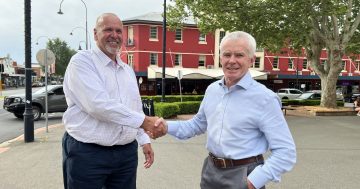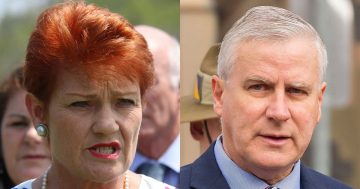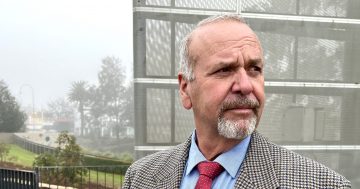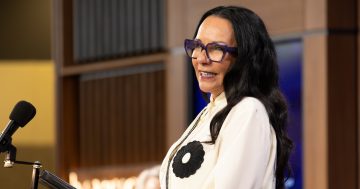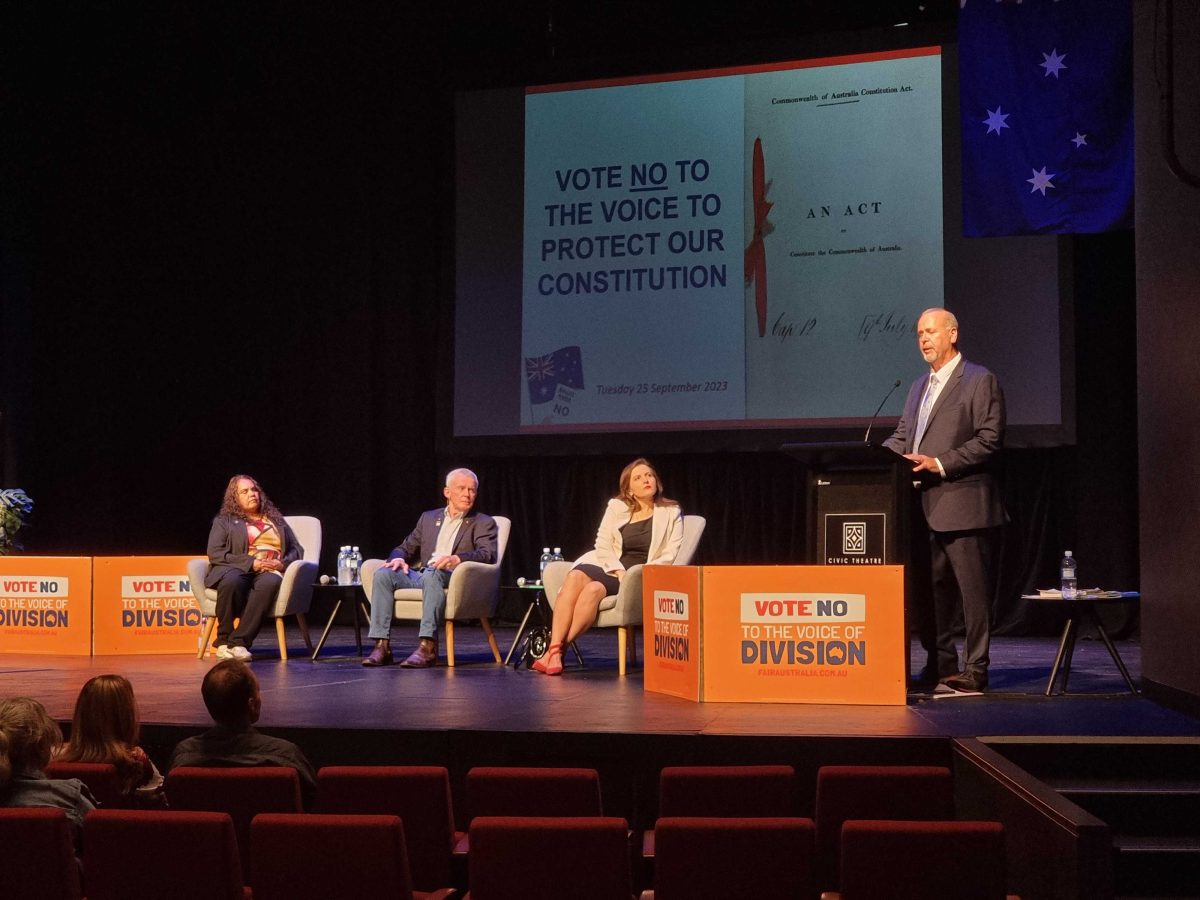
The Vote No! Voice to Parliament event took place at the Wagga Wagga Civic Theatre with local Aboriginal woman Paula Murphy, Queensland One Nation Senator Malcolm Roberts, One Nation MLC Tania Mihailuk and former Wagga councillor and event organiser Paul Funnell. Photo: Shri Gayathirie Rajen.
With pre-polling open in Wagga’s Berry Street, both the ‘Yes’ and ‘No’ camps have been making their case for and against the Indigenous Voice to Parliament.
While Yes campaigners have been active in the past few weeks with a string of events including MPs Linda Burney and Julian Leeser, former politician and runner Pat Farmer and AFL legend Michael Long, those opposed to the Voice held their first event last week.
Queensland One Nation Senator Malcolm Roberts addressed around 150 people during the Vote No! Voice to Parliament event at the Wagga Wagga Civic Theatre.
Local residents also heard from constitutional law expert Julie Head, local Aboriginal woman Paula Murphy and former NSW Labor shadow minister turned One Nation MLC Tania Mihailuk.
Senator Roberts argued that voting ‘yes’ in the referendum would be “bad for the Aboriginal Torres Strait Islanders”.
“It will increase the power of the Aboriginal industry, which consists of white and black activities, lawyers, consultants, bureaucrats, and politicians, and will increase their power and remove their accountability,” said Senator Roberts.
“That’s the biggest problem the Aboriginals face in this country. The white and black Aboriginal industry is oppressing them.
“It’s bad for Australians in general … it will decrease the power and representation of Australians. It’s bad for our country because it’s a precursor to a treaty that reduces our sovereignty.”
Senator Roberts believes First Nations people in Australia have already been recognised.
“One of the big problems I have with this supposed constitutional change is that it will be enshrined in the constitution forever, the need to give Aboriginal and Torres Strait Islanders a leg up. That is extremely racist,” he said.
“That is consigning the Aboriginals to being below everyone else forever.
“We’ve got to give everyone a level playing field in this country.”
Former Wagga councillor and event organiser Paul Funnell said the Voice to Parliament would do nothing for First Nations people.
“This is not going to put a meal on a table for anyone, give a child an education, or save the women from cultural issues …” Mr Funnell said.
“People are uncomfortable hearing those things, but that’s the simple fact.
“The opportunities are already there and people have to be educated in a manner on how they seize those opportunities.”
Mr Funnell said the Government and the Yes movement were imposing a clear delineation of a “racist” document.
The referendum will be held on 14 October and you can learn more about both perspectives here.







